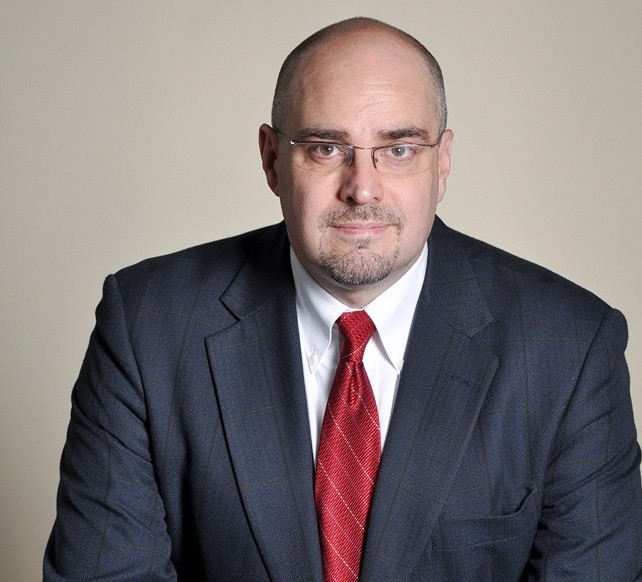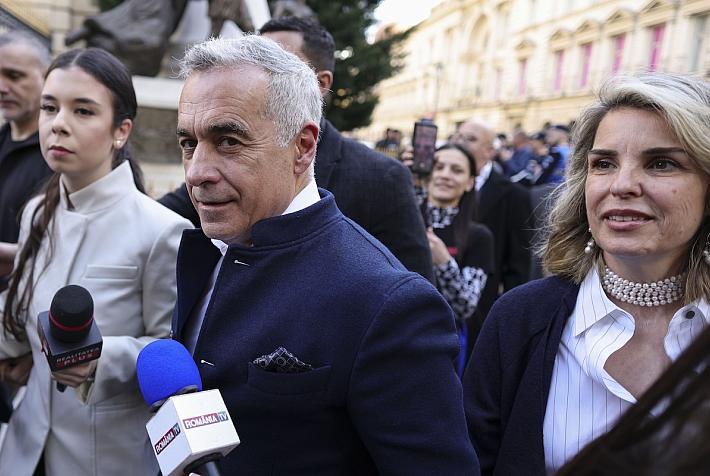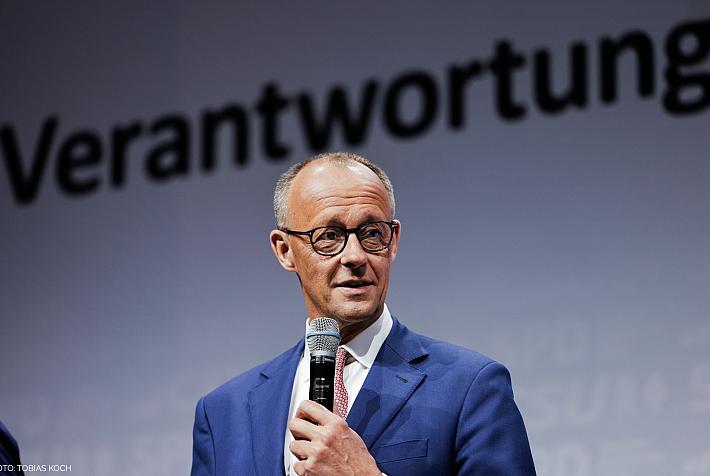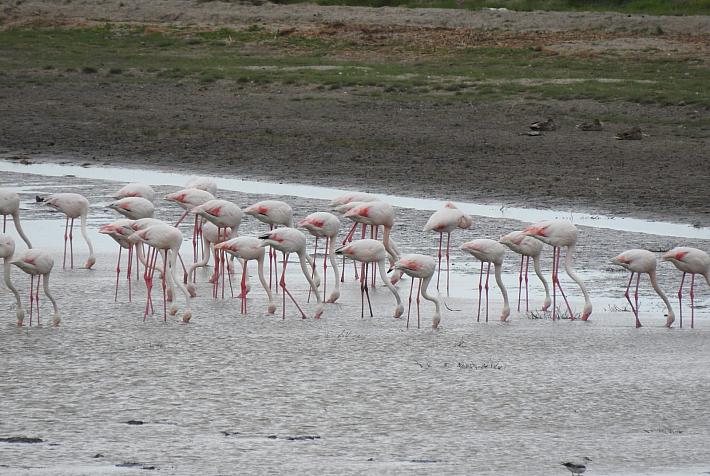The long way home or how Oliver Olson has become a full-timer in Romania

 “Why did I choose to live in Romania? Because 20 years ago I stood in front of Casa Presei Libere and realized that this is where I belonged.” This is how American Oliver Olson, the dean of Maastricht School of Management Romania ends his story in a book about foreigners who choose Romania. His trip to Romania was neither short, nor simple. It took him 20 years to have everything in the same place: family, job and his heart and true calling. Oliver Olson talked to Romania-Insider.com about the road that led him to 'now'.
“Why did I choose to live in Romania? Because 20 years ago I stood in front of Casa Presei Libere and realized that this is where I belonged.” This is how American Oliver Olson, the dean of Maastricht School of Management Romania ends his story in a book about foreigners who choose Romania. His trip to Romania was neither short, nor simple. It took him 20 years to have everything in the same place: family, job and his heart and true calling. Oliver Olson talked to Romania-Insider.com about the road that led him to 'now'.
By Corina Saceanu
Two years ago, when Oliver Olson, at the time the dean of CEU Business School in Romania got the phone call from the Budapest headquarters sometime in January announcing that the decision had been made to close down the local branch, it took him a day to work out plan B and start on a different path. He knew that this phone call would come, as he knew Romania was no longer of strategic importance for CEU, even though the local branch ranked first on the Romanian market and was closest to being self sustaining. He was then given the option to go back to Budapest and continue working with CEU there, which would have made some sense, given that his Romanian wife and their twin boys were there. But he chose not to, and instead took another path, that would take him closer to the goal of making a difference in Romania, and having his family back home.
He realized he had created a network, goodwill, had a group of faculty, alumni and potential students left by the CEU Business School and decided to take the opportunity. He made a short list of four potential accredited universities but contacted only one: Maastricht School of Management. Five months later, after trips to the Netherlands, get to know each other time and negotiations, he and his business partners were signing the partnership agreement and launching MSM Romania, a move that would bring Oliver just one step away from his target. “I had a once in a lifetime opportunity when a program like CEU was leaving, but leaving me with a group of alumni, a group faculty, and goodwill on the market. I just needed a university to give the degree, and I went and found one,” he says.
This year, his family is to finally move to Bucharest, after a family journey that started in Romania in the 90s, brought them to the US for eight years, and back to Europe to stay in Budapest.
He might miss the 15-hour train rides from Budapest to Bucharest: “I have taken this trip at least 100 times in the last 6 years and each time it still feels like a mini-vacation.” He will say goodbye to spending half of his time in Romania and half in Budapest, and will become a full timer in Romania, a country that taught him to have appropriate expectations and that more is gained by being open and willing to learn from other cultures.
“Romania has always seen what a benefit it is to not be xenophobic or too overly culturally focused. Romanians are open and willing to learn from other cultures. Sometimes it is too much – Romanians also need to be a bit more proud of what they have here and sometimes create more things themselves,” says Olson.
What Oliver and his team created in the academic field with MSM Romania is something that became clear to him later on in his career. He was 37 when, after a string of jobs in banking and financial, he was offered a job at CEU Business School and discovered his call for teaching. The vision behind MSM Romania is closer to the initial one that CEU Business School had: bringing Western quality education to Eastern Europe and filling the education gap in the emerging world.
While speaking passionately about what he does and about the quality of the MBA program MSM Romania is running – now already in the second year of activity – Oliver remembers his first encounter with Romania, in the early 90s. In 1991, when he was on a study year in Sweden, he came to visit Romania at the invitation of a Romanian that used to work for the Swedish Embassy in Bucharest and who was taking the same Swedish language course. It was not by chance that Oliver decided to study in Sweden, as his family heritage, from both parents, is Swedish.
When arriving in Bucharest by a late night train, he was greeted beyond expectations. “Unlike today when one is accosted by overpriced taxi drivers, in July 1991 I was greeted by a young man who asked me if I needed any help. He then walked with me to a side window, used a station phone to call my hosts and then arranged for a taxi to drive me to my destination. He never asked for any compensation and would not even take a tip that I offered. “ During that trip he met the women who would become his wife five years later, and realized that he wanted to make a difference in this part of the world.
From his home in Visalia, California, Oliver arrived in Eastern Europe, but it has been a back and forth trip for him ever since, between other countries and Romania, and not an easy ride for his family either. “But we always knew this was temporary,” he says. Meanwhile, he picked up Romanian and learned to understand much of how Romanians are.
“Romanians have always been some of the smartest students, either in Budapest or here, and teachers always remark on that. They ask good questions, are active in class, and are good seekers of knowledge. But they can have short attention spans, they are very good at being in the moment. You can see that when you look around, in the country's society. Romanians are more immediate, which also translates into infrastructure, type of buildings and planning. They are good at the short term, not always keeping the eye on the long term,” he explains.
An easy going personality, patient and looking for the good in people, Oliver adapted quite well to Romania, the secret being, he says, always having appropriate expectations. “I have been blessed with an easy-going personality and extremely low expectations. I think that this is the perfect combination for surviving, and thriving, in Romania. It is ok to have higher expectations if you are willing to do something on your own to change things,” says Oliver.
A fan of the 80s music and always keen on discovering new, slightly weird bands, Oliver Olson chose to live in Berceni neighborhood – and not in Pipera like many expats in Romania do – and says he loves the neighborhood, which makes him something of an 'oddity' here.
He might be an oddity as well for his family in the US, for whom, he says, Romania is still “an exotic country”. The country he chose to call home.
Corina Saceanu, corina@romania-insider.com











